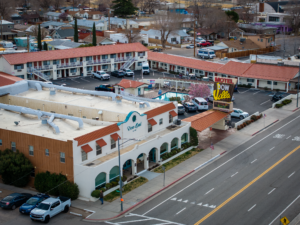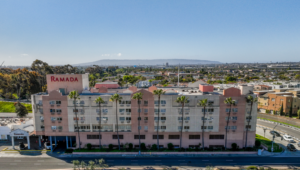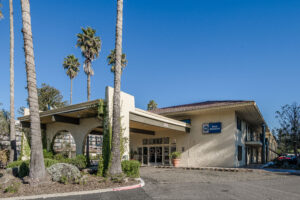Westbrook Partners defaults on loan tied to San Francisco Four Seasons
Westbrook Partners defaults on loan tied to San Francisco Four Seasons
By Sarah Klearman and Alex Barreira – San Francisco Business Times | Mar 14, 2024 Updated Mar 14, 2024 5:50pm PDT
This week Westbrook Partners was served a notice of default for a $72.5 million loan tied to 222 Sansome St., the home of the Four Seasons San Francisco at the Embarcadero.
Westbrook, which acquired the 155-key hotel property in 2019 for $126.6 million, or about $816,000 per room, is behind more than $3.15 million in payments on the loan, per a notice of default recorded for the property March 3. The Florida-based developer has not made its monthly payment on its loan since December, per the notice, which states that Westbrook has 90 days to become current on its loan.
If the investor fails to do so, its lenders could move to foreclose on the property, which occupies the top 11 stories of the 48-story tower at 345 California St. but is considered a separate property and employs the 222 Sansome address. Notices of default typically constitute the first step in the foreclosure process, though in some cases loan sponsors like Westbrook purposefully default on their loans as a way to commence negotiations with their lenders.
Neither Westbrook nor Waterfall Asset Management, which in 2022 acquired the $72.5million loan from the original lender, HSBC Bank, could immediately be reached for comment Thursday.
The Four Seasons San Francisco at Embarcadero has been especially vulnerable to the ups and downs of downtown San Francisco over the past few years. In 2019 Loews Hotels sold 222 Sansome to Westbrook for roughly $20 million less than it acquired what was then known as the Mandarin Oriental San Francisco for in 2015.
Under Westbrook’s ownership, the property temporarily shuttered to undergo extensive renovations. The work wasn’t completed until 2022, two years after the original target opening date for spring 2020.
The hotel’s opening was ultimately postponed until October 2020 and shuttered againuntil reopening for good in June 2021.
Real estate services firm Eastdil Secured began marketing the property for sale that year, according to a source familiar with the property who requested anonymity to preserve business relationships. It’s not clear what kind of interest the listing generated; Waterfall stepped in to purchase Westbrook’s loan on the property in early 2022, a move that suggests they may have had an eye towards the possibility of taking control of the property.
“What this tells me is the borrower has chosen not to continue feeding the negative cash flow and by definition doesn’t see the asset being worth more than $72 million,” said Alan Reay, President of Irvine-based Atlas Hospitality Group, which analyzes the hotel asset market.
With the loan representing about 57% of the purchase price, that would potentially signify a value drop of 43%.
“If there was no increase in the net operating income between 2019 and today, just the interest rates would represent a 40% drop in value,” Reay said. “But I’d say San Francisco isn’t yet back to where it was in 2019, and that’s where the rubber is hitting the road right now.”
In 2021, Westbrook argued to the San Francisco Assessment Appeals Board that the value of the parcel containing the hotel was not $125 million — as it had been originally assessed — but $82 million.
Reay said he expects in this particular case the property will go through the foreclosure process and the hotel owner may fi le for bankruptcy to protect itself from a personal guarantee on the loan.
“As they start to go back to the bank, you’ll have owners who are coming out of pocket to feed their hotel and will suddenly go, ‘Wait a minute — what was once an $800,000 key hotel is now $400,000, and I owe $500,000,'” Reay said. “In that case, I’m not going to keep paying my debt.”
In the heady days of 2019, Reay said, owners could afford to project for a 5% to 6% capitalization rate on their property when interest rates were around 4%. Now, with interest rates hovering around 7.5% to 8%, a prospective buyer would need to see the potential for a 9% or 10% cap rate.
Reay added that it’s possible in this case Waterfall acquired the loan with an eye towards eventually possessing the property. It’s becoming more common in recent years for lenders to sell loans when they see a loss in value in the property due to the expense of actually taking title through the foreclosure and bankruptcy process, and for opportunistic investors to swoop in.
Reay compared the Four Seasons situation to that of the Huntington Hotel — which was acquired at a steep discount by a Flynn Properties joint venture after it bought the property’s debt and then foreclosed on the deed to take over. In that instance, the goal is to reposition the property as one of the city’s most competitive luxury stays. The Four Seasons, by contrast, is already there.


